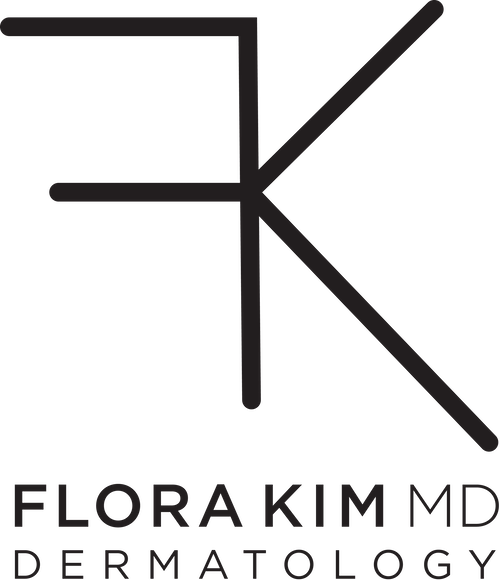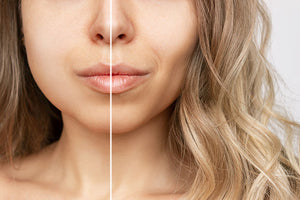Fortifying The Skin Barrier

When you think about the organs that keep you alive, your skin is probably the last thing to come to mind. But really, your skin barrier is your body’s true frontline defense against harmful toxins and environmental stressors like pollution and UV rays. And without a healthy skin barrier, all of the water inside of your body would simply escape and evaporate, causing complete dehydration.
What is Our Skin Barrier?
The stratum corneum is the outermost layer of your skin. It acts as a watertight seal to keep moisture in your body and keep harmful bacteria, toxins, and environmental stressors out. Your skin barrier keeps a healthy separation between the external environmental world that you constantly interact with, and your internal balanced homeostasis.
The easiest way to understand your skin barrier is to think of it like a brick wall. The “bricks” are your skin cells. The “mortar” that keeps those bricks together is composed of lipids and naturally moisturizing compounds such as amino and fatty acids, cholesterol, and ceramides. The “mortar” also helps move moisture in between your skin cells, so your skin stays supple and healthy.
When your skin barrier becomes dry, cracked, or fissured, it is like having bricks and mortar missing from the brick wall. Thus, unwelcome intruders like bacteria and viruses can enter more easily. Plus, you can lose the moisture the wall was keeping in. To repair this metaphorical wall, you need the components that make up the bricks and mortar, such as ceramides and lipids, to care for the skin. This is why the right skincare product formulation and active ingredients can make all the difference.
Damaged Skin Barrier
Your skin barrier can be affected by a wide range of factors, from ultraviolet A (UVA) and ultraviolet B (UVB) damage to extreme temperatures and long airplane rides. Combined, external or environmental aggressors paired with internal factors like genetics or hormones can damage the skin barrier over time.
When the barrier is not functioning properly, you will be more prone to experiencing skin that is:
- Dry or scaly
- Itchy or tight
- Sensitive or inflamed
- Increasingly acne-prone
- Has rough or discolored patches
- Experiencing bacterial, viral, or fungal skin infections
When the barrier is damaged, your skin loses its healthy glow and tends to look dull, uneven, red, and dry. An increase in blemishes is common, as are stubborn post-breakout marks. A damaged skin barrier is more susceptible to UV rays, pollution, and water loss, meaning it can be difficult to soothe inflamed acne or blemishes, and repair hyperpigmentation and signs of aging.
Repairing the Skin Barrier on the Face
When repairing the skin barrier, you want to avoid over washing with hot water, harsh cleansers, abrasive scrubs, and heavily-fragranced products that can further irritate your skin. Instead, look for active ingredients that will nourish and replenish your skin, such as fatty acids, ceramides, and hyaluronic acid.
My personal favorite products to lock in hydration and protect the skin barrier include:
- Sheald Recovery Balm: A moisture-rich formula that dramatically replenishes hydration to dry, sensitive, or compromised skin.
- Tensage Intensive Serum 40: A collagen and elastin-boosting serum that features a high level of growth factors to maintain moisture levels and significantly reduce and prevent the visible signs of aging.
- Triple Lipid Restore 2:4:2: An anti-aging cream that contains the optimal lipid ratio of 2% pure ceramides 1 and 3, 4% natural cholesterol, and 2% fatty acids, which is proven to nourish skin and correct signs of aging.
- Biopelle Tensage Advanced Cream: A richly-textured cream moisturizer formulated with vitamin E and skin-firming agents to reduce skin damage and lock in hydration.
Let’s Protect Your Skin Barrier Together
Your skin is not just pretty—it’s working hard to keep you safe! Book a virtual consultation with me today to create the ideal skin care strategy to protect your skin barrier, so it can continue to protect you.



